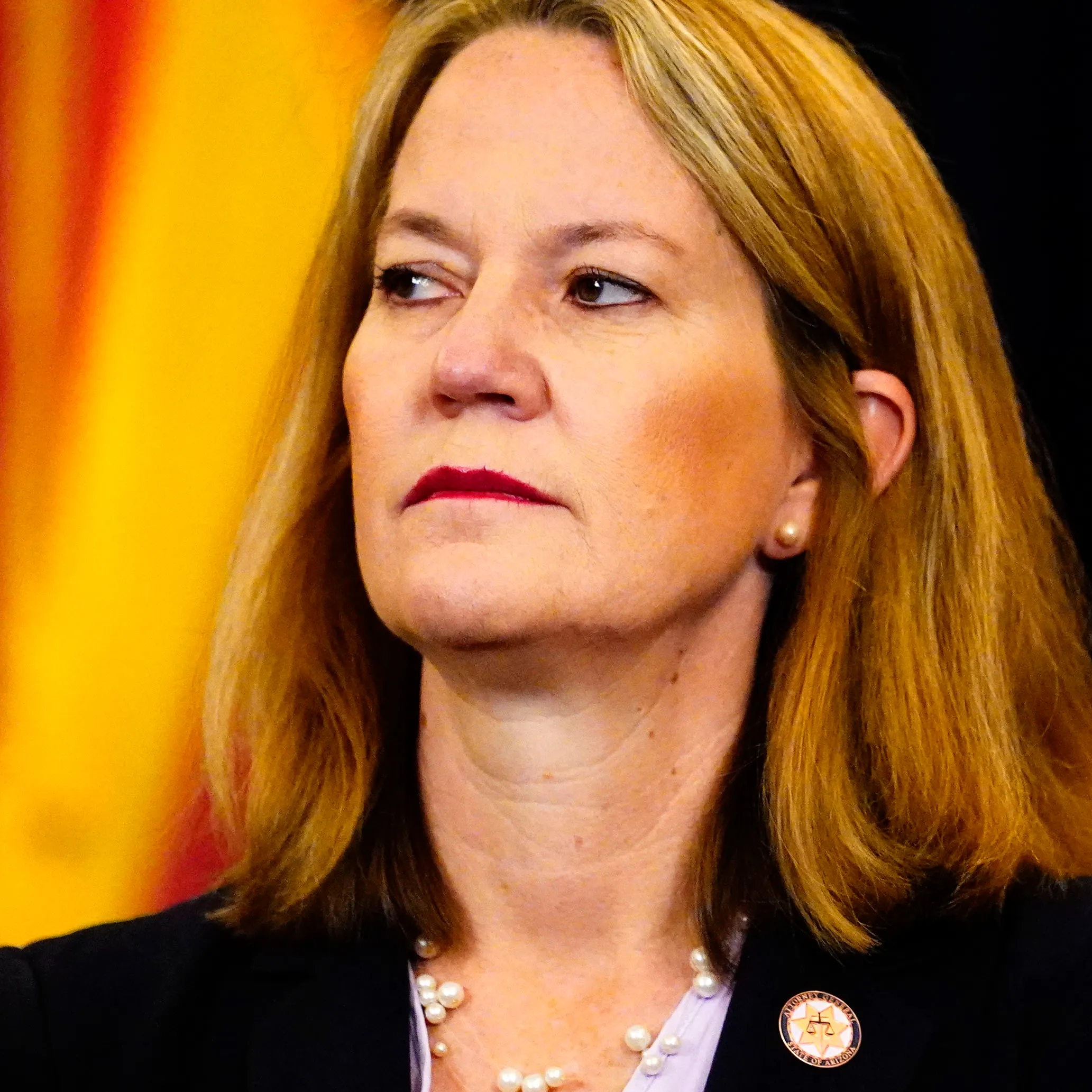In a leaked call among Arizona’s top officials – Governor Katie Hobbs, Attorney General Kris Mayes and Secretary of State Adrian Fontes – we now hear how the same top officials allegedly worked together to potentially bury a massive voter registration glitch that caused 98,000 voters to be irregularly removed from their rolls in Arizona, just before the 2020 election and the 2022 election. Does this mean that the 2020 and 2022 elections need to be done again? At this point, the public certainly has a right to ask these questions – and demand answers.
Details of the Leak
In the leaked audio, the state officials reportedly discussed the implications of the registration glitch, and how it might prompt the public to call for new elections in Arizona, with the discussion apparently centered on how to contain the political fallout instead of actually correcting the voter registration problem and what it might mean. Election integrity groups, meanwhile, are increasingly up in arms claiming that the voter registration problems can change election results in several key battleground states, like Arizona.
The leak immediately provoked reactions from both sides of the political aisle – opponents called for heads to roll; election integrity activists filed lawsuits seeking an investigation into the malfunction and calling for re-elections of both the 2020 presidential and 2022 midterm elections.
The Political Fallout
There’s real potential here for major political fallout: 2022 was the first election cycle in which Arizona became a true swing state. The 2020 presidential race was decided by a little more than 10,000 votes; the 2022 US Senate race was decided by a little more than 30,000. Imagine how those race outcomes might have been affected by this voter registration glitch. Ever since 2020, Arizona has been a fulcrum in debates over election integrity, and this new development again brings with it demands for full overviews of the state’s election systems.
While many of those who have spoken out against the current administration in Arizona have lauded their concern for ‘election integrity’, their critics have implied the contrary: that these officials cared less about transparency and more about their political futures. Indeed, the contents of the unfortunate call overheard by Kendall have birthed accusations of prioritizing the maintenance of political livelihoods over concerns for election integrity in the state. Legal scholars have also gotten involved, arguing that, if the charges are proven, they could open the door to lawsuits and challenges to election results.
Election Integrity and Legal Challenges
Election integrity organizations, including some grassroots groups, have voiced outrage at the cover-up. Several have filed suits, in an attempt to enlist the judiciary to investigate the scope of the glitch, and order new elections if warranted. Depending on the details of any such filing, the question of whether the registration error was ‘sufficient to have materially affected the election’ will likely prove central to the cases. If proven, the example could become a precedent for contesting election outcomes on the grounds of administrative failures.
Hans von Spakovsky, an election law expert at the conservative Heritage Foundation in Washington, DC, told me that the fallout could be big: ‘If these 10,000 or so voters were indeed denied the right to vote, this case could be the catalyst for election reform in the rest of the country. Depending on the size of the error, the courts could be forced to decide if the error is so large that it invalidates the fundamental process of public trust in the elections.’
Growing Calls for New Elections
With public outcry and multiple election integrity watchdog groups pressuring the state’s officials for answers, is Arizona set to recount, review and reinvestigate the results of 2020 and 2022 elections? Some groups cite the need for outside, independent audits of the voter rolls, and a full recount of the election results to ensure confidence. An analysis of the demographics might show what groups claim, that the glitch affected the voter rolls mostly or entirely in one demographic, and that resulting registration errors disenfranchised people.
Arizona voters – and some who were disenfranchised by the registration glitch – are rightly demanding how this happened. A lot of people have been making their outrage known on social media. Some have even gone as far as to say we need immediate re-elections to restore confidence in democracy. Officials from the Arizona Secretary of State’s office have not given a thorough explanation on what happened to the voter rolls but have promised an internal investigation.
The Road Ahead
Once again, Arizona is the subject of election law skirmishes nationwide And although Sarich and the Rocky Mountain Institute for Constitutional Law are awaiting the judge’s ruling on the importance of the precise words of the tape, Brett Johnson, a well-known political consultant in the state and producer of a political talk show, said the leak has only intensified polarization of an already polarized state. ‘This scandal will have a ripple effect on the upcoming elections in Arizona,’ Johnson remarked. ‘And it will start a national discussion about reforming the voter registration system so that we don’t have a reoccurrence of this kind of glitch.’ But until the courts decide if new elections are necessary, the state’s beleaguered electoral process will remain unchanged. The casting and counting of votes will continue.
What the story is revealing as it develops is the need to ensure that vote counts are secure, and that every vote is counted. The officials in Arizona are being scrutinized more closely. The outcome of this case could have a significant impact on the way in which voter registration issues are resolved in the US going forward.
For more details and ongoing updates, visit Politico and The Arizona Republic.

